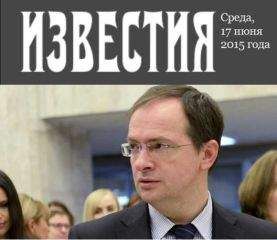Брендан Симмс - Европа. Борьба за господство
146
Joachim Whaley, ‘A tolerant society? Religious toleration in the Holy Roman Empire, 1648–1806’, in Ole Grell and Roy Porter (eds.), Toleration in Enlightenment Europe (Cambridge, 2000), pp. 175–95, especially pp. 176–7.
147
Derek Croxton, ‘The Peace of Westphalia of 1648 and the origins of sovereignty’, International History Review, 21, 3 (1999) pp. 569–91 (quotations pp. 589–90).
148
Andreas Osiander, ‘Sovereignty, international relations, and the Westphalian myth’, International Organization, 55 (2001), pp. 251–87; Stéphane Beaulac, ‘The Westphalian legal orthodoxy – myth or reality?’, Journal of the History of International Law, 2 (2000), pp. 148–77; and Stephen D. Krasner, ‘Westphalia and all that’, in Judith Goldstein and Robert O. Keohane (eds.), Ideas and foreign policy. Beliefs, institutions and political change (Ithaca and London, 1993), p. 235. Социологический взгляд: Benno Teschke, The myth of 1648. Class, geopolitics, and the making of modern international relations (London and New York, 2003).
149
Peter Englund, Die Verwüstung Deutschlands. Eine Geschichte des dreissigjährigen Krieges (Stuttgart, 1998), especially pp. 343–63, and Thomas Robisheaux, Rural society and the search for order in Early Modern Germany (Cambridge, 1989), pp. 201–26.
150
Ian Roy, ‘England turned Germany? The aftermath of the Civil War in its European context’, Transactions of the Royal Historical Society, Fifth Series, 28 (1978), pp. 127–44 (especially pp. 127–30).
151
Иное мнение: David Lederer, ‘The myth of the all-destructive war: afterthoughts on German suffering, 1618–1648’, German History, 29, 3 (2011), pp. 380–403.
152
Quoted in Klaus Malettke, ‘Europabewusstsein und europäische Friedenspläne im 17. und 18. Jahrhundert’, Francia, 21 (1994), pp. 63–94 (p. 69).
153
Quoted in Sven Externbrink, Friedrich der Grosse, Maria Theresia und das alte Reich. Deutschlandbild und diplomatie Frankreichs im Siebenjährigen Krieg (Berlin, 2006), pp. 89–90.
154
David Onnekink (ed.), War and religion after Westphalia, 1648–1713 (Farnham, 2009), pp. 1–15.
155
Букв. «имперское установление» (нем.). Примеч. ред.
156
Bernd Marquardt, ‘Zur reichsgerichtlichen Aberkennung der Herrschergewalt wegen Missbrauchs: Tyrannenprozesse vor dem Reichshofrat am Beispiel des südöstlichen schwäbischen Reichskreises’, in Anette Baumann, Peter Oestmann, Stephan Wendehorst and Siegrid Westphal (eds.), Prozesspraxis im alten Reich. Annäherungen – Fallstudien – Statistiken (Cologne, Weimar and Vienna, 2005).
157
Karl Härter, ‘Sicherheit und Frieden im frühneuzeitlichen Alten Reich: zur, Funktion der Reichsverfassung als Sicherheits – und Friedensordnung 1648–1806’, Zeitschrift für historische Forschung, 30 (2003), pp. 413–31.
158
D. J. B. Trim, “If a prince use tyrannie towards his people”: interventions on behalf of foreign populations in Early Modern Europe’, in Brendan Simms and D. J. B. Trim (eds.), Humanitarian intervention. A history (Cambridge, 2011), pp. 54–64.
159
Thomas Gage’s remarks of about 1654 are cited in Charles P. Korr, Cromwell and the New Model foreign policy. England’s policy toward France, 1649–1658 (Berkeley, Los Angeles and London, 1975) p. 89. Article 42 of the Treaty of the Pyrenees is cited in Peter Sahlins, ‘Natural frontiers revisited. France’s boundaries since the seventeenth century’, American Historical Review, 95, 5 (1990), pp. 1423–51 (p. 1430).
160
Robert I. Frost, The northern wars. War, state and society in north-eastern Europe, 1558–1721 (Harlow, 2000), pp. 198–200.
161
The Great Elector is cited in Richard Dietrich (ed.), Die politischen Testamente der Hohenzollern (Cologne and Vienna, 1986), p. 188.
162
Paul Sonnino, Mazarin’s quest. The Congress of Westphalia and the coming of the Fronde (Cambridge, Mass., and London, 2008), pp. 168–71.
163
Richard Bonney, Society and government in France under Richelieu and Mazarin 1624–61 (Basingstoke, 1988), pp. 21–5.
164
Cited in Christopher Clark, Iron kingdom. The rise and downfall of Prussia, 1600–1947 (London, 2006), p. 55.
165
Christoph Fürbringer, Necessitas und libertas. Staatsbildung und Landstände im 17. Jahrhundert in Brandenburg (Frankfurt, 1985), passim (quotations pp. 56, 67 and 162–3).
166
F. L. Carsten, ‘The resistance of Cleves and Mark to the despotic policy of the Great Elector’, The English Historical Review, LXVI, 259 (1951), pp. 219–41, especially pp. 223–4 and 232 on the foreign policy link.
167
Ferdinand Grönebaum, Frankreich in Ost – und Nordeuropa. Die französisch-russischen Beziehungen von 1648–1689 (Wiesbaden, 1968), especially pp. 32–3.
168
Peter Burke, The fabrication of Louis XIV (New Haven, 1992).
169
Georges Livet, ‘Louis XIV and the Germanies’, in Ragnhild Hatton (ed.), Louis XIV and Europe (London and Basingstoke, 1976), pp. 60–81, especially pp. 62–3.
170
Quoted in Andrew Lossky, Louis XIV and the French monarchy (New Brunswick, NJ, 1994), p. 129.
171
Guy Rowlands, The dynastic state and the army under Louis XIV. Royal service and private interest, 1661–1701 (Cambridge, 2002).
172
Стратегическая мотивация: Leslie Tuttle, Conceiving the old regime. Pronatalism and the politics of reproduction in Early Modern France (Oxford, 2010), p. 7.
173
John A. Lynn, Giant of the Grand Siècle. The French army, 1610–1715 (Cambridge, 1997), especially pp. 595–609.
174
William Beik, Absolutism and society in seventeenth-century France. State power and provincial aristocracy in Languedoc (Cambridge, 1985), pp. 150–51 and 156–7, and Bailey Stone, The genesis of the French Revolution. A global-historical interpretation (Cambridge, 1994), p. 58. The quotations range from the 1630s to the 1690s.
175
Название одной из высших должностей в Соединенных провинциях, дававшей право, в частности, от имени Генеральных штатов вести переговоры с иноземными послами и министрами. Примеч. ред.
176
Writing in 1673, quoted in Klaus Malettke, Frankreich, Deutschland und Europa im 17 und 18. Jahrhundert. Beiträge zum Ein uss französischer politischer Theorie, Verfassung und Aussenpolitik in der Frühen Neuzeit (Marburg, 1994), p. 311.
177
О влиянии внешнего давления на работу сейма: Anton Schindling, Die Anfänge des immerwährenden Reichstags zu Regensburg. Ständevertretung und Staatskunst nach dem Westfälischen Frieden (Mainz, 1991), pp. 53–5, 68–90 and 229–30.
178
Wout Troost, ‘“To restore and preserve the liberty of Europe”. William III’s ideas on foreign policy’, in David Onnekink and Gijs Rommelse (eds.), Ideology and foreign policy in Early Modern Europe (1650–1750) (Farn – ham, 2011), pp. 283–304 (German context pp. 288–9).
179
О важности Нидерландов и Германии для испанской стратегии: Christopher Storrs, The resilience of the Spanish monarchy, 1665–1700 (Oxford, 2006), pp. 14 and 113–14. Аннексия Франш-Конте: Darryl Dee, Expansion and crisis in Louis XIV’s France. Franche-Comté and absolute monarchy, 1674–1715 (Rochester, NY, and Woodbridge, 2009).
180
Sonja Schultheiss-Heinz, ‘Contemporaneity in 1672–1679: the Paris Gazette, the London Gazette, and the Teutsche Kriegs-Kurier (1672–1679)’, in Brendan Dooley (ed.), The dissemination of news and the emergence of contemporaneity in Early Modern Europe (Farnham, 2010), pp. 115–36.
181
Об английских политических памфлетах: Tony Claydon, Europe and the making of England, 1660–1760 (Cambridge, 2007), pp. 220–25. Германия: Erich Everth, Die Öffentlichkeit in der Aussenpolitik von Karl V. bis Napoleon (Jena, 1931), pp. 155–7.
182
Alexander Schmidt, ‘Ein französischer Kaiser? Die Diskussion um die Nationalität des Reichsoberhauptes im 17. Jahrhundert’, Historisches Jahrbuch, 123 (2003), pp. 149–77, especially pp. 150, 156–8 and 174.
183
Gabriel Glickman, ‘Conflicting visions: foreign affairs in domestic debate, 1660–1689’, in William Mulligan and Brendan Simms (eds.), The primacy of foreign policy in British history, 1660–2000. How strategic concerns shaped modern Britain (Basingstoke, 2010), pp. 15–31.
184
Quoted in Brendan Simms, Three victories and a defeat. The rise and fall of the first British Empire, 1714–1783 (London, 2007), p. 32.
185
Annabel Patterson, The Long Parliament of Charles II (New Haven and London, 2008), pp. 178–208, especially pp. 179–80.
186
О важности «деволюционной войны» для отношения немцев к Людовику: Martin Wrede, Das Reich und seine Feinde: politische Feindbilder in der reichspatriotischen Publizistik zwischen Westfälischem Frieden und Siebenjährigem Krieg (Mainz, 2004), pp. 330–407.
187
Leonard Krieger, The German idea of freedom. History of a political tradition (Chicago and London, 1957), pp. 6, 19 and passim.
188
Quoted in Peter SchrÖder, ‘The constitution of the Holy Roman Empire after 1648: Samuel Pufendorf’s assessment in his Monzambano’, Historical Journal, 42 (1999), pp. 961–83 (quotation p. 970).
189
Wolfgang Burgdorf, Reichskonstitution und Nation. Verfassungsreformprojekte für das Heilige Römische Reich deutscher Nation im politischen Schrifttum von 1648 bis 1806 (Mainz, 1998), W. H. Pufendorf quotations pp. 70–73.
190
Sophus Reinert, Translating Empire. Emulation and the origins of political economy (Cambridge, Mass., 2011).
191
О Вестфальском мире, пиренейском мире и имперской политике Испании: Stanley H. Stein and Barbara H. Stein, Silver, trade and war. Spain and America in the making of Early Modern Europe (Baltimore and London, 2000), pp. 57–105.
192
Louvois’s remark of June 1684 is cited in Livet, ‘Louis XIV and the Germanies’.
193
Wouter Troost, ‘William III, Brandenburg, and the construction of the anti-French coalition, 1672–88’, in Jonathan Israel (ed.), The Anglo-Dutch moment. Essays on the Glorious Revolution and its world impact (Cambridge, 1991), pp. 299–333.
194
Quoted in G. Symcox, ‘Louis XIV and the outbreak of the Nine Years War’, in Ragnhild Hatton (ed.), Louis XIV in Europe (London, 1976), p. 187.
195
Quoted in John A. Lynn, The wars of Louis XIV, 1667–1714 (London and New York, 1999), p. 197.
196
Quotations in Claydon, Europe and the making of England, pp. 56 and 239.
197
Charles II is quoted in ibid., p. 237.
198
Tony Claydon, William III and the godly revolution (Cambridge, 1996), pp. 138–40 and passim.
199
Christopher Storrs, ‘The army of Lombardy and the resilience of Spanish power in Italy in the reign of Carlos II (1665–1700)’, in War in History, Part I, 4 (1997), pp. 371–97, and Part II, 5 (1998), pp. 1–22.
200
Quoted in Wout Troost, ‘Ireland’s role in the foreign policy of William III’, in Esther Mijers and David Onnekink (eds.), Rede ning William III. The impact of the King-Stadholder in international context (Aldershot, 2007), pp. 53–68 (quotation p. 53).
201
Quoted in Everth, Öffentlichkeit in der Aussenpolitik, p. 147.
202
Steve Pincus, 1688. The first modern revolution (New Haven and London, 2009), pp. 475–7 and passim.
203
David Stasavage, Public debt and the birth of the democratic state. France and Great Britain, 1688–1789 (Cambridge, 2003).
204
Philip J. Stern, The company-state. Corporate sovereignty and the Early Modern foundations of the British Empire in India (Oxford, 2011).
205
Robert D. McJimsey, ‘A country divided? English politics and the Nine Years’ War’, Albion, 23, 1 (1991), pp. 61–74.
206
Quoted in Miles Ogborn, ‘The capacities of the state: Charles Davenant and the management of the excise, 1683–1698’, Journal of Historical Geography, 24 (1998), pp. 289–312.
207
A. F. Upton, Charles XI and Swedish absolutism (Cambridge, 1998), pp. 71–89.
208
Peter H. Wilson, War, state and society in Württemberg, 1677–1793 (Cambridge, 1995), especially pp. 247–8.
209
Andre Wakefield, The disordered police state. German cameralism as science and practice (Chicago and London, 2009).
210
Owen Stanwood, ‘The Protestant moment: anti-popery, the Revolution of 1688–1689, and the making of an Anglo-American empire’, Journal of British Studies, 46 (2007), pp. 481–508 (quotations pp. 488, 491, 501 and 491).
211
Quoted in Christian Greiner, ‘Das “Schild des Reiches”. Markgraf Ludwig Wilhelm von Baden-Baden (1655–1707) und die “Reichsbarriere” am Oberrhein’, in Johannes Kunisch (ed.), Expansion und Gleichgewicht. Studien zur europäischen Mächtepolitik des ancien régime (Berlin, 1986), pp. 31–68 (quotation p. 47).




